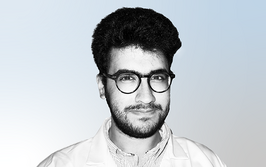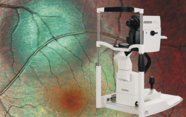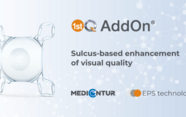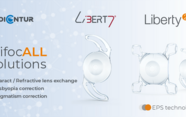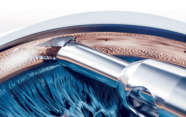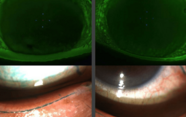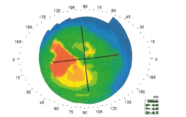
Feast for the Eyes
Most people on extreme diets won’t know what they are doing to their eyesight – until it’s too late – so should ophthalmologists routinely ask their patients what they eat?
We know that diet can directly impact ocular health – indeed, we have known it for years. If the “eat your greens” commands we received as children weren’t enough – and they often weren’t – the Age-Related Eye Disease Studies (AREDS) has since put science into our plates of spinach. The first AREDS study, nearly two decades old, showed that AMD patients who take high doses of antioxidants and micronutrients (vitamins C and E, beta-carotene, zinc and copper) reduce their risk of progressing to advanced AMD by about 25 percent. Similarly, AREDS 2 suggested that some patients can benefit from supplementing their diet with high levels of lutein and zeaxanthin.
In these studies, patients took very high levels of vitamin supplements; however, lower levels – such as those derived from a diet rich in, for example, leafy green vegetables – are also thought to reduce the risk of AMD (1). Furthermore, the influence of diet on ocular health extends beyond modulation of AMD risk; a quick glance through PubMed will reveal numerous studies suggesting a role for micronutrients in ocular disease – for example, glaucoma (2).
Mostly, however, the impact of diet seems relatively subtle – a modulation of progression here, a nudge in incidence rate there. But then, most people have relatively “normal” diets; upping their consumption of fruit and veg probably just shifts their position within the middle part of the bell-curve.
To see what can happen to the human eye in a truly nutrient-challenged environment, we must look to the extremes of eating. Case in point: a tragic, but exemplary, incident that received broad coverage in the UK media in the last couple of weeks, following its publication in a peer-reviewed journal (3). Briefly, a teenage boy complained of tiredness to his GP; he was known to be a fussy eater, but tests indicated normal BMI and no visible signs of malnutrition. Blood tests revealed anemia and low levels of vitamin B12; accordingly, the boy was prescribed B12 injections. Within a year, however, the patient was complaining of hearing loss and visual impairment. Sadly, his sight was lost before the true cause of his complaint was revealed: retinal starvation resulting from years of eating only chips, crisps and white bread, with the occasional addition of processed pork. Clinicians from the Bristol Medical School and Bristol Eye Hospital, UK, concluded that the unusually limited nature of his food intake had resulted in B12 deficiency, low levels of vitamin D, copper and selenium, high levels of zinc, reduced bone density – and severe optic neuropathy.
Denize Atan, Consultant Senior Lecturer in Ophthalmology, Bristol Medical School, UK, warns that diet-related optic neuropathy may become more prevalent as junk-food consumption – or a limited vegan diet – become more common. What should we take home from this? Perhaps that an investigation of dietary history should be included in any routine clinical examination – including initial ophthalmic consultations.
- National Eye Institute, “What the Age-Related Eye Disease Studies Mean for You” (2018), Available at: https://bit.ly/2lILP7a. Accessed September 9, 2019. SC
- Sacca et al., “Substances of interest that support glaucoma therapy”, Nutrients, 11 (2019). PMID: 30678262.
- R Harrison et al., “Blindness caused by a junk food diet”, Ann Intern Med, [Epub ahead of print] (2019). PMID: 31476767.

